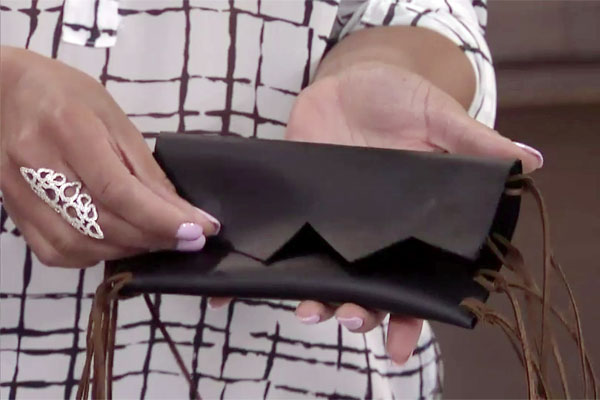Denim embellishing is a hot trend that can get quite expensive in the stores. DIY expert Denise Wild shows us four techniques that are simple to do at home that will make your jeans runway worthy for a fraction of the cost!
1. Glue it
Materials
- Fray Stop
- Fabric glue
- Fabric scissors
- Patterned fabric of your choice (try a tribal or Peruvian print for an ethnic statement)
Instructions
- Cut the fabric into the desired shape.
- Run some Fray Stop over the raw edges of the fabric to prevent them from fraying.
- Glue the fabric onto your denim and let dry for 24 hours.
TIP: Wash the fabric before gluing it to your denim to pre-shrink and avoid the fabric shrinking on the jeans.
2. Iron it
Materials
- Assorted iron-on patches
- Rowenta Steam Force iron
- Pressing cloth
Instructions
- Turn your iron onto a high-heat setting.
- Lay the patches onto your denim right-side-up in the desired layout.
- Place the pressing cloth over the patches.
- Press your iron onto the pressing cloth over the patches, and hold it in one place for 15-30 seconds. Repeat until the patches are secured on the denim.
- Let the patches cool.
3. Punch it
Materials
- Gem tool
- Gems
Instructions
- Determine the layout of the gems on your denim.
- Load the gems in the gem tool according to instructions.
- Punch the gems in place.
4. Sew it
Materials
- 2 pairs of jeans
- White lace trim (about 1” wide) (enough for three strips around one leg)
- Fabric scissors
- Tailor’s pins
- Threaded sewing machine
Instructions
- Cut the legs off both pairs of jeans. Remember that you’ll lose a 1.5 cm (5/8”) seam allowance off both jeans when you sew them together, so factor that in when cutting.
- Pin the white lace trim around the top portion of one leg and top-stitch it in place.
- With right sides together, sew the two bottom legs to the two top legs, back-stitching at both ends.
- Finish the raw edges with an over-edge zigzag or a serger.


